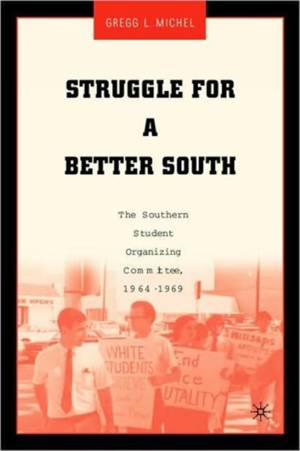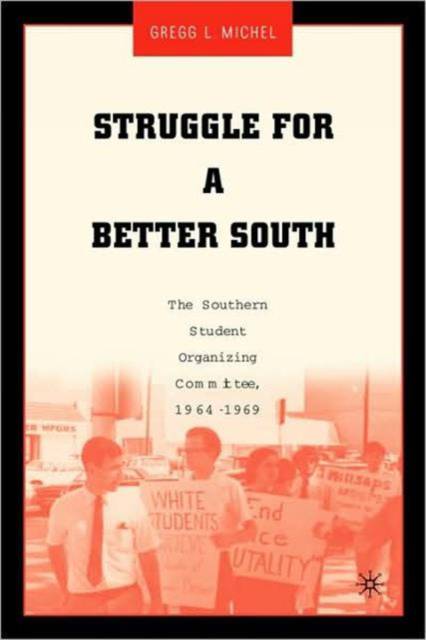
- Afhalen na 1 uur in een winkel met voorraad
- Gratis thuislevering in België vanaf € 30
- Ruim aanbod met 7 miljoen producten
- Afhalen na 1 uur in een winkel met voorraad
- Gratis thuislevering in België vanaf € 30
- Ruim aanbod met 7 miljoen producten
Zoeken
Struggle for a Better South
The Southern Student Organizing Committee, 1964-1969
G Michel
Paperback | Engels
€ 83,95
+ 167 punten
Uitvoering
Omschrijving
Struggle for a Better South dispels the notion that all whites in the South stood united against social change in the 1960s. Gregg Michel's compelling study of the Southern Student Organizing Committee (SSOC), the leading progressive organization created by young white activists in the South during that tumultuous decade, fills a crucial gap in the literature about New Left activism. Michel shows that the SSOC was the only activist group of the era that worked to cultivate white support for the social movement. The SSOC's members gave themselves the delicate task of reconciling their love for the South and its history - warts and all - with their modern-day commitment to equality and justice for all people.
Specificaties
Betrokkenen
- Auteur(s):
- Uitgeverij:
Inhoud
- Aantal bladzijden:
- 324
- Taal:
- Engels
Eigenschappen
- Productcode (EAN):
- 9780230602564
- Verschijningsdatum:
- 15/01/2008
- Uitvoering:
- Paperback
- Formaat:
- Trade paperback (VS)
- Afmetingen:
- 152 mm x 229 mm
- Gewicht:
- 467 g

Alleen bij Standaard Boekhandel
+ 167 punten op je klantenkaart van Standaard Boekhandel
Beoordelingen
We publiceren alleen reviews die voldoen aan de voorwaarden voor reviews. Bekijk onze voorwaarden voor reviews.











